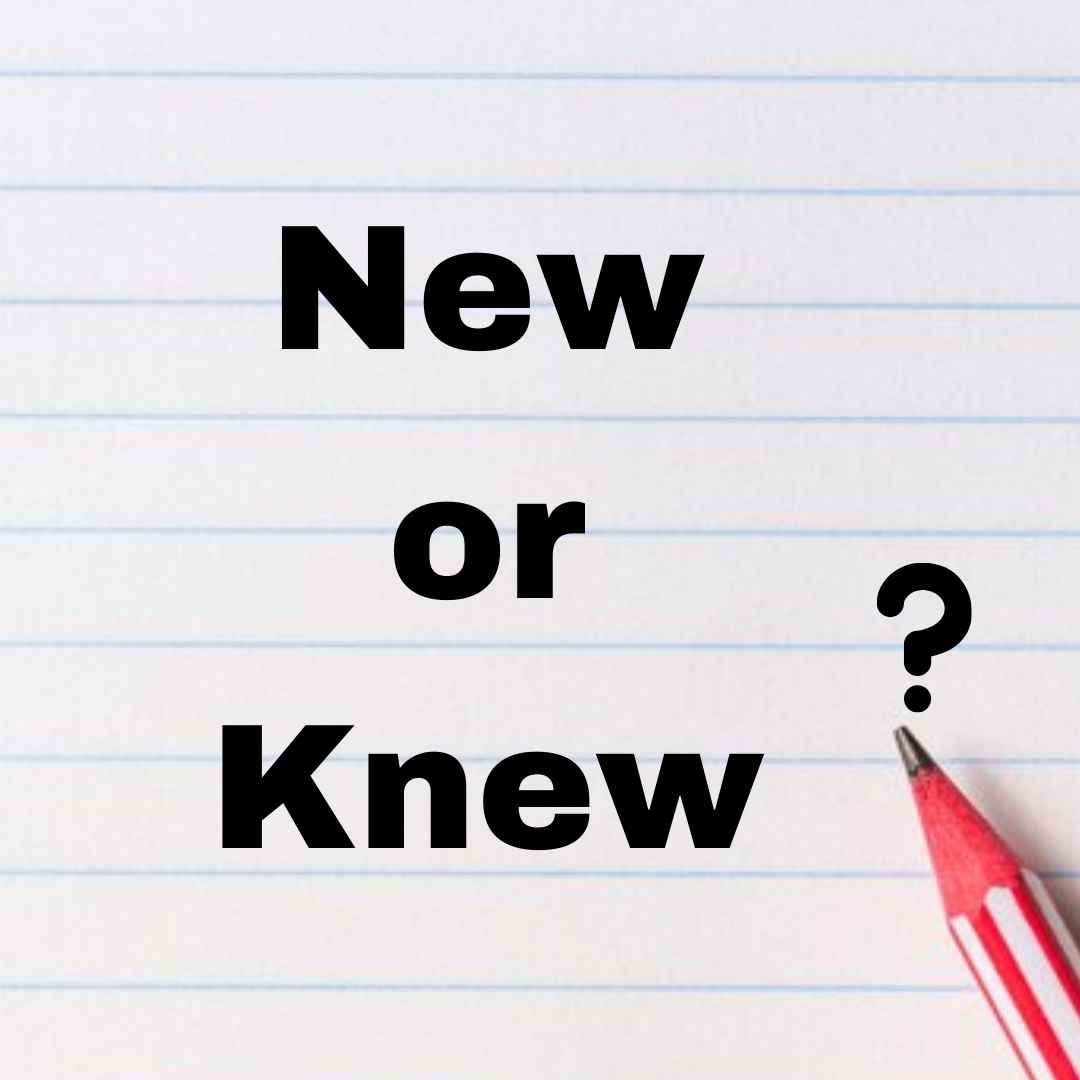
In English, “new” and “knew” may sound alike, but they have distinct meanings and uses. In this guide, we’ll explore the definitions, pronunciation, and examples of both words to help you use them correctly.
Definition of "New":
- “New” is an adjective that describes something recently made, discovered, or acquired.
- Example: Sarah bought a new dress for the party.
- In this sentence, “new” describes the dress as recently acquired.
Definition of "Knew":
- “Knew” is the past tense of the verb “know.” It indicates that someone had knowledge or awareness of something in the past.
- Example: She knew the answer to the question.
- Here, “knew” shows that she had knowledge of the answer.
Pronunciation:
- “New” is pronounced as “n(y)oo,” with the “oo” sound similar to the word “blue.”
- “Knew” is pronounced as “noo,” rhyming with “blue” but without the initial “y” sound.
How to Choose the Correct Word:
- Determine if you’re describing something that is recent or if you’re referring to past knowledge or awareness.
- If you’re talking about something recent, use “new.”
- If you’re referring to past knowledge or awareness, use “knew.”
Examples of Correct Usage:
- New: The store just received new stock of smartphones. Explanation: “New” describes the smartphones as recently acquired.
- Knew: I knew him when we were in school together. Explanation: “Knew” indicates past knowledge or awareness of the person.
Common Mistakes to Avoid:
- Confusing “new” with “knew” and vice versa.
- Remember, “new” refers to something recent, while “knew” indicates past knowledge.
- Pay attention to context to determine which word is appropriate for the situation.
Read also: When To Use Their or They’re
Practice Pronunciation:
- Practice saying “new” and “knew” aloud to become comfortable with their pronunciation.
- Repeat the words several times to improve your pronunciation skills.
Conclusion
Understanding the difference between “new” and “knew” is crucial for clear communication in English. By knowing their definitions, pronunciation, and correct usage, you can avoid confusion and effectively express yourself in both spoken and written English.